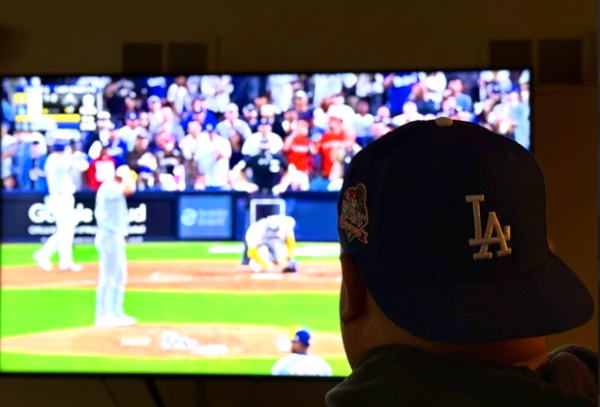Maintain your mental health this winter
If you have ever experienced the “holiday blues,” you are not alone
As the first semester nears its end, students work tirelessly through final projects, important deadlines and the academic stress of the winter season. Many students have found pleasure in listening to music while working and indulging in warm drinks from the Common Grounds.
January 11, 2023
While many recognize the upcoming winter season as the “most wonderful time of the year”, experiencing a mental health decline during these months is not uncommon, particularly for students. Understanding how your body and mind react to the shift is vital not only for acquiring and maintaining the most promising self-care mechanisms, but also for understanding how you can optimally support others.
In a survey of 48 Lemont High School students, 66.7% reported that the winter months casted an effect on their mental health, with many observing a decrease in motivation and energy. Although infinitely many situational factors can contribute to this decline, most students attributed it to the cold weather, the quickly disappearing sunlight and the heightening stress of excessive school work and academic expectations.
“I seem to always get to school late, as it’s harder for me to get up in the morning. I also end up not doing my homework and my grades drop. Additionally, I become less sociable and more depressed. In summer, the direct opposite happens,” said freshman Rosemary Bullwinkel.
In the same survey, 70.8% of students reported alterations to their sleeping patterns during the winter months. With the changing clock misaligning our circadian rhythm, many suffer from chronic sleep loss, causing a spike in negative emotions. Similarly, many students associated the winter months with feeling sad, lonely, drained and stressed.
According to the National Alliance on Mental Illness, “The winter season is known for daylight saving, which is correlated with reduced sunlight, potentially causing a drop in serotonin that may trigger depression.”
As the correlating Vitamin D deficiency poses challenges for regulating emotions, this destructive absence of sunlight also tampers with the ability to engage in mentally-relaxing activities, such as spending time outdoors. For this reason, many students associated the summer months with feeling happy, energetic and relieved.
While the holiday blues are temporary by definition, these short-term troubles can easily spiral into long-term mental health conditions without the proper mitigations. Many students acknowledged the value in exercising for the endorphin boost, talking with friends or family and listening to music.
However, not every case is just the blues. Not every case has an easy remedy. Several students opened up about being diagnosed with Seasonal Affective Disorder (SAD), a type of depression that emerges when the seasons change. Seeking professional help is undoubtedly the most effective and trustworthy route in this situation; oftentimes, self-care is just a bandaid for a bullet wound. If you feel that you or a loved one may be experiencing seasonal depression, do not hesitate to contact a medical professional.
In the meantime, the least you can do for others is reach out. Check in. Offer to listen. Monitor symptoms of yourself and others. Be someone people feel safe and comfortable around.
Be someone’s lifeline. We must recognize that opening up about this type of situation and asking for help is never as simple as it sounds. If someone does open up to you, appreciate their bravery. You never know the burdens someone else may be carrying.
If it feels like you are buried in an avalanche of distress during the winter months, know that you never have to deal with it alone.
“Winter stands as a reminder that I can make it through anything,” said junior Michael Amberg.
So can you.







